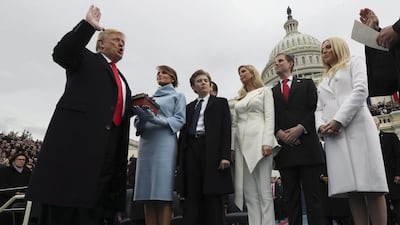When Donald Trump this week pulled the United States out of the Trans-Pacific Partnership (TPP) he committed himself to a long-expected policy, but quite unexpected politics. After all, opposition to TPP came, first of all, from the political left – creating the unusual spectacle of American politicians on the hard Republican side, such as John McCain, criticising Mr Trump, while he was praised by none other than Bernie Sanders. But opposition to TPP is merely one signal of a much wider move. TPP is – perhaps was – a trade deal by 12 countries around the Pacific, meant to make trade between those countries much easier. In a way, though, there has been a change in the way trade deals are conducted, from the belief in multilateralism to a more bilateral approach.
The United States is far from the only country pulling away from multilateralism. The UK, after Brexit, is looking to strike bilateral deals around the world. It is particularly interested in India, another country keener on bilateral ties than a multilateral approach. Russia, too, is deeply suspicious of the European Union, preferring to focus on deepening bilateral ties with countries along its periphery.
What these countries have in common is a belief that, as big, powerful countries, they will always get a better deal one-to-one than they will as part of a bigger bloc. Donald Trump, for example, feels that the US would lose more as part of TPP than it would gain, particularly in the area of American jobs. He feels similarly about Nato, believing that the US should not contribute such a large share to the common defence alliance.
The idea of multilateralism appears to be under threat. What was meant to be a signal achievement of the post-Soviet world, major reform of the international trading system by the World Trade Organisation, has faltered. It has been 15 years since the “Doha Round” of trade talks started, and a deal has still not been agreed.
This decline of multilateralism is dangerous. Open borders, open information and the movement of people and products have made the world richer and, because of the consequent interdependence, much safer. A retreat to national borders and to big power politics means a focus on short-term politics, not long-term values. If large countries such as Russia and America can’t cooperate with their neighbours, it makes everyone else less safe.

